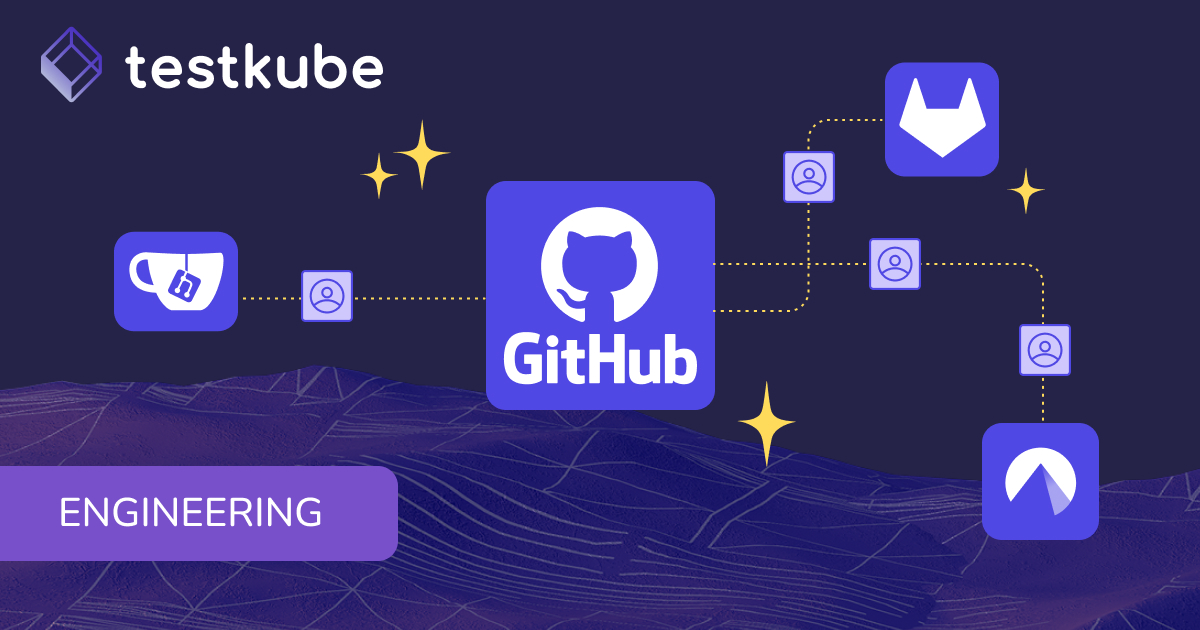

Table of Contents
Try Testkube free. No setup needed.
Try Testkube free. No setup needed.


Table of Contents
Executive Summary
The developer community is experiencing a notable shift in sentiment toward GitHub, with increasing discussions about migration to alternative platforms. Recent conversations across social media and developer forums are revealing some growing concerns about the platform's direction under Microsoft's ownership, which is sparking debates about vendor lock-in, data sovereignty, and the need for high-performing and scalable build pipelines. The scale of this conversation is pretty significant.
.png)
The Current Landscape of Concerns
While GitHub remains the dominant platform for code hosting and collaboration, several factors are driving developers to reconsider their dependence on the Microsoft-owned service:
Corporate Control and Data Sovereignty
Many developers express discomfort with having their code and development workflows controlled by a major corporation, with some questioning why the community accepts such dependence on corporate platforms.
Security and Compliance Concerns
Developers and enterprises are increasingly wary of centralized data control, particularly around GitHub's code scanning capabilities and AI-based code suggestion tools that mine repositories for training data. This extends to regulatory compliance, with EU sovereignty requirements and export restrictions creating complications for international teams.
The risk of proprietary code being analyzed by external systems or exposed through AI model training has become a significant consideration for security-conscious organizations.
Vendor Lock-in and Performance Issues
The increasing integration of GitHub-specific features creates dependencies that make migration challenging, particularly around GitHub Actions. Beyond dependency concerns, many teams report frustrating performance bottlenecks:
- Queue times during peak hours
- Concurrency limits that throttle development velocity
- Cost complexity with unpredictable billing
Philosophical Differences
Some believe that decentralized, open-source alternatives better align with software development's foundational principles.
The GitHub Actions Problem
GitHub Actions represents both the biggest migration barrier and the clearest pain point. While deeply integrated into development workflows, Actions suffers from fundamental limitations as a generalist automation platform pressed into specialized workflows.
Performance and Scale Bottlenecks
Teams frequently encounter builds waiting minutes or hours to start during peak usage. Concurrency limits bottleneck larger organizations running multiple projects, while the per-minute billing model lacks transparency around resource utilization, leading to budget surprises.
Domain-Specific Short-comings
Github Actions operates as a general-purpose automation framework rather than optimized infrastructure for specialized workloads. Teams running domain-specific tasks, whether AI model training, data transformation pipelines, or large-scale end-to-end and performance tests, often fight against platform constraints rather than leveraging purpose-built capabilities designed for their specific needs.
GitHubs Testing Challenges
This problem becomes particularly acute in the testing domain, where GitHub Actions falls short beyond just scalability issues. Teams encounter a cascade of inefficiencies:
- Fragmented visibility: Test results scattered across multiple job logs with no centralized reporting or trend analysis
- Limited troubleshooting: Debugging failed tests requires navigating through generic automation logs rather than testing-specific diagnostic tools
- Resource optimization gaps: No testing-specific optimizations for parallel execution, test data management, or environment provisioning
- Queue competition: Test jobs compete with deployment scripts, notifications, and other automation for the same runner capacity
Queue times compound when multiple test jobs compete for limited runner capacity, while the lack of domain-specific optimizations means longer execution times, higher costs, and reduced developer productivity.
GitHubs AI Workload Challenges
Perhaps few would consider using Github Actions for core AI Workflows, but just to spell out a number of obvious short-comings:
- No native GPUs. GitHub-hosted runners don’t offer GPUs. You can bolt on self-hosted GPU runners, but then you’re on the hook for provisioning, drivers/CUDA, upgrades, security, and autoscaling.
- Ephemeral runners & hard time limits. Github Actions jobs are designed to finish quickly. Training often needs long-running, checkpointed, resumable jobs. Actions will cut you off and wipe the machine state.
- Scaling & cost control. Github Actions is a queue-based CI. You don’t get elastic GPU autoscaling, preemption handling, or job-level budgets common in ML platforms.
Both the testing and AI examples above indicate significant opportunities for specialized solutions that can address specific domain workflows more effectively than GitHub's generalist approach.
Emerging Alternatives and Migration Strategies
All of that being said, the developer community isn’t just complaining, they’re actively building and adopting alternatives. What’s critical to understand is that different alternatives target different categories of problems. A platform migration (e.g. moving code from GitHub to GitLab or Gitea) may address sovereignty or vendor lock-in concerns, but it will not solve the fundamental performance and scalability limits of GitHub Actions. For those gaps, teams are increasingly adopting domain-specific solutions that complement or replace generalist automation.
Self-Hosted Solutions
- Gitea has emerged as a lightweight, distributed option that gives teams direct infrastructure control and returns ownership to developers.
- GitLab remains the most established enterprise alternative, offering a comprehensive platform that includes CI/CD, while still giving organizations more control than GitHub.
These choices primarily address repository ownership, corporate control, and lock-in concerns, not the testing or AI workload bottlenecks developers face.
Community-Driven Platforms
- Codeberg.org is gaining adoption among open-source projects that value community governance and alignment with open principles.
- Azure DevOps remains relevant for Microsoft-centric teams but does little to address broader concerns about centralized corporate platforms.
These solutions appeal to developers motivated by philosophy and governance, but again, they don’t directly fix the testing scalability or AI workload limitations of GitHub Actions.
Domain-Specific Complementary Solutions
Rather than replacing GitHub entirely, many teams are layering in specialized platforms that address the most painful workflows:
- Testing: Continuous testing platforms like Testkube provide purpose-built optimizations for distributed, Kubernetes-native test execution.
- AI/ML workloads: Dedicated ML orchestration systems handle GPUs, long-running jobs, and elastic scaling that generalist CI systems cannot.
- Data pipelines and transformations: Specialized workflow engines ensure reliability and visibility at scale.
This hybrid approach allows organizations to keep repositories on familiar platforms while offloading heavy workloads to purpose-built systems that actually solve GitHub’s testing and AI gaps.
How Testkube Fits into GitHub Migration Paths
With testing infrastructure representing one of the most critical and resource-intensive domains ripe for optimization, Testkube is emerging as the go-to solution in this domain. Testkube is a Continuous Testing platform for Cloud Native applications which provides flexible migration strategies that don't require an all-or-nothing platform switch.
Hybrid Migration
Teams can keep repositories on GitHub while offloading heavy testing workloads to Testkube, solving performance, cost, and security issues without disrupting code collaboration workflows. Testkube workflows trigger from GitHub pull requests while executing tests in secure, optimized clusters under full organizational control.
Platform-Agnostic Testing
For complete migrations to GitLab, Gitea, or other alternatives, Testkube serves as a unifying testing layer that works consistently across source control platforms. Instead of being locked into each platform's specific CI/CD solution, teams standardize on cloud-native continuous testing that runs in their Kubernetes clusters regardless of code hosting location.
Progressive Migration
This flexibility means teams can address their most pressing pain points first (whether GitHub Actions performance, security concerns, or vendor lock-in), while maintaining workflow elements that serve them well.
Unlike general automation platforms, Testkube's specialized focus on continuous testing addresses the most complex and resource-intensive portions of CI/CD pipelines with purpose-built optimizations that GitHub Actions cannot match.
The Bottom Line
The GitHub migration discussion reveals a shift in priorities. What started as frustration with performance and costs has evolved into deeper questions about platform independence, data sovereignty, and the future of development infrastructure.
The Immediate Testing Opportunity
Testing and CI/CD workflows represent one of the most resource-intensive and painful aspects of GitHub dependency in organizations doing Continuous Testing at scale. While developers debate repository hosting alternatives, the testing bottleneck demands immediate solutions. Testkube addresses this directly by breaking the GitHub Actions dependency while enabling flexible migration strategies that don't require wholesale platform changes.
The Broader Transformation
As AI-driven development tools like Copilot accelerate code generation, the testing challenge intensifies exponentially. Faster code creation demands more continuous, distributed, and secure testing infrastructure. This makes specialized testing platforms not just convenient alternatives, but operational necessities for teams serious about quality and velocity.
Looking Forward
Whether this translates into mass GitHub exodus remains uncertain, but we do know that the conversation signals a big change. Developer willingness to trade convenience for control suggests a future that's more distributed and specialized than today's centralized model. The platforms that recognize and serve this evolution will define the next generation of development infrastructure.
The question isn't whether teams will eventually need better testing solutions; it's whether they'll address this need proactively or wait until GitHub's limitations force their hand.


About Testkube
Testkube is a cloud-native continuous testing platform for Kubernetes. It runs tests directly in your clusters, works with any CI/CD system, and supports every testing tool your team uses. By removing CI/CD bottlenecks, Testkube helps teams ship faster with confidence.
Explore the sandbox to see Testkube in action.








